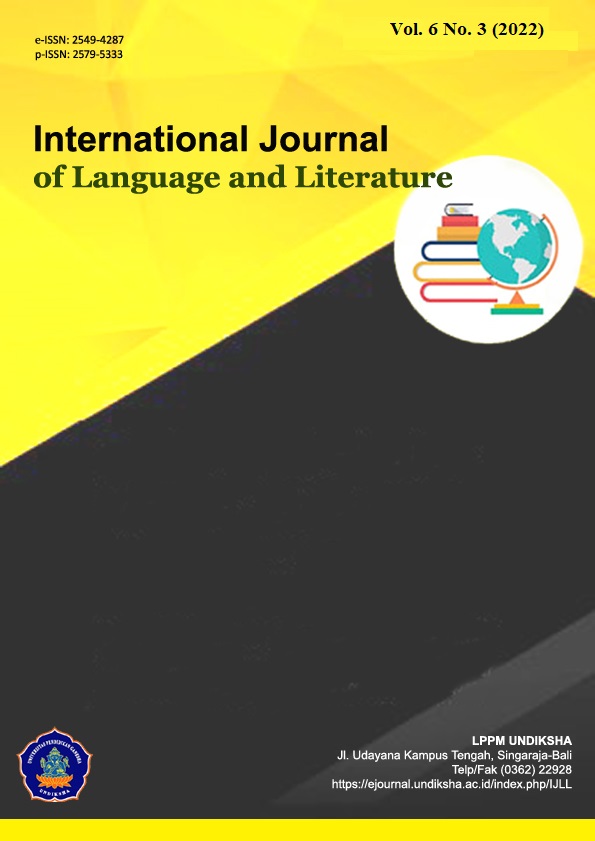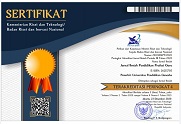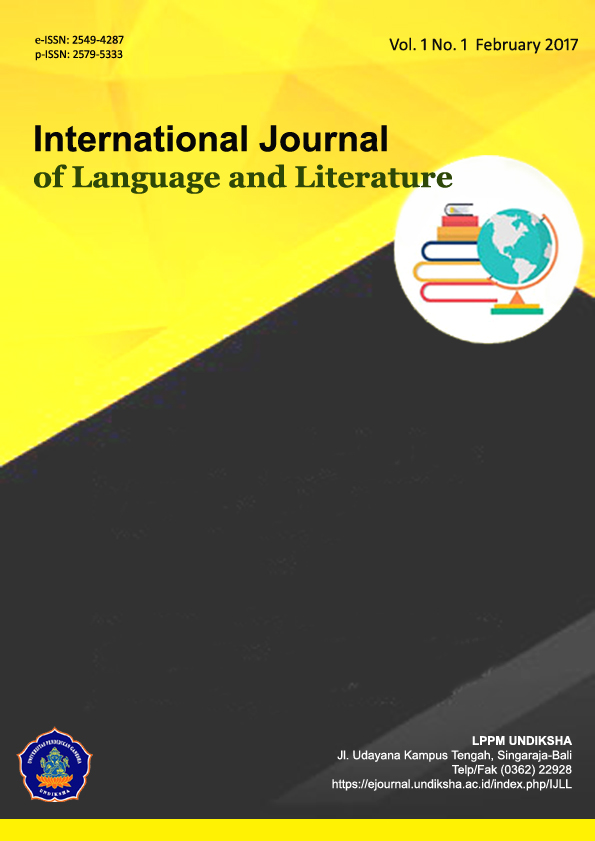Teachers’ Perception Toward Assessing Students Based On 21st-Century Skills
DOI:
https://doi.org/10.23887/ijll.v6i3.29224Keywords:
21st-century skills, assessment, teachers’ perception.Abstract
This study aimed to analyze the teachers’ perception in assessing the implementation of the 21st-century skills, in Private Elementary schools in Badung Regency. This study used mixed method research design. There were two schools as the representatives of Private Elementary schools in Badung Regency. This study analyzed the teachers’ readiness in assessing the students’ 21st-century skills. Four teachers were selected using a convenient sampling method. The instruments used in this study comprised questionnaires, anecdotal records, and interview guides. It was found that English teachers in both schools have positive responses toward inserting 21st-century skills in their assessment. This is indicated by the mean score of the respondents’ responses which means that the teachers perceived themselves as being ready in inserting the skills into their assessment. The score falls into the category of high level of readiness as they feel that they had inserted most of the skills in the assessment instruments used to assess their students’ English language learning.
References
Anderson, C, (2006). The long tail: Why the future of business in selling less of more. New York: Hyperion.
Gamar, M. M., Faruq, M. S., & Lina. (2018). Challenging the indonesian primary education in industrial revolution 4.0 era. Advances in Social Science, Education and Humanities Research, 269, 46-48. DOI: https://doi.org/10.2991/coema-18.2018.12
Hanna, G. S. & Dettmer, P.A. (2004). Assessment for effective teaching: Using context-adaptive planning. Boston, MA: Pearson A & B.
Kusumawati & Hadi. (2018). An analysis of multiple-choice questions (MCQs): Item and test statistics from mathematics assessments in senior high school, 4(1), 70-78. DOI: https://doi.org/10.21831/reid.v4i1.20202
Padmadewi, N. N., Artini, L. P., & Nitiasih, P. K. (2017). Techniques for building character and literacy for 21st-century education. Advances in Social Science, Education and Humanities Research, 173, 250-253.
Reece, I. & Walker, S. (1997). Teaching, training and learning: A practical guide. Sunderland: Business Education Publisher.
Rusdin, N. M. (2018). Teachers’ readiness in implementing 21st. International Journal of Academic Research in Business and Social Sciences, 8(4), 1293 - 1306. DOI: https://doi.org/10.6007/IJARBSS/v8-i4/4270
Scardamalia, M. & Quellmalz, E.S. (2010). Assessment and teaching of 21st-century skills. The University of Melbourne.
Trilling, B., & Fadel, C. (2009). 21st century learning skill: learning for life in our time (first edit). Jossey-Bass A Wiley Imprins.
Downloads
Published
How to Cite
Issue
Section
License
Copyright (c) 2023 International Journal of Language and Literature

This work is licensed under a Creative Commons Attribution-ShareAlike 4.0 International License.
IJLL Journal provides immediate open access to its content on the principle that making research freely available to the public to supports a greater global exchange of knowledge.

This work is licensed under a Creative Commons Attribution-ShareAlike 4.0 International License








